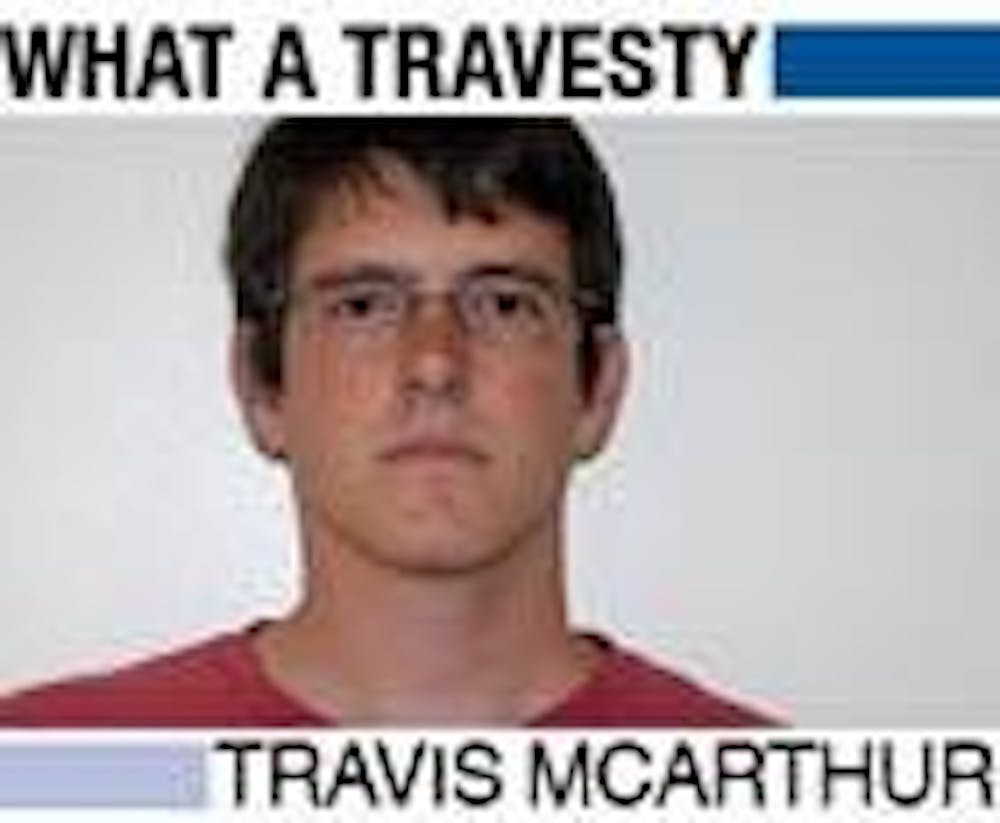Picture the following situation: Laws with shaky moral foundations prevent a category of people, most of whom are in a racial minority, from exercising their right to participate in their federal government through voting. This is not Birmingham, Ala., 1963. This is Washington, D.C., 2007.
The first interpreters of the Constitution believed that D.C. should not have a representative in the legislature because the right to send delegates to Congress was reserved for states, and the District of Columbia was a district. They were also expecting that the population of D.C. would remain inconsequential because the federal government would remain small compared to state governments.
Two world wars, superpower status and a reconceptualization of the role and size of the federal government have brought on a population explosion in the District that the founding fathers could not have imagined. Today, almost 600,000 citizens live in D.C. proper, and the greater Washington metropolitan area includes 5 million people. It is the 24th most populous city in the United States, and has a greater population than the entire state of Wyoming.
Today, the idea that District residents should not have the right to participate in federal legislative elections is repugnant. In 1969, the Supreme Court declared that "[i]t can hardly be argued that either students or teachers shed their constitutional rights to freedom of speech ... at the schoolhouse gates." Likewise, it can hardly be argued that U.S. citizens lose their constitutional right to vote in federal legislative elections by moving to the District or by simply being born here.
It's a sad fact that D.C. voting rights have been the victim of cynical partisan politics. Republicans resent the idea of giving the franchise to an electorate that is solidly supportive of Democrats. John Kerry received a whopping 89 percent of all D.C. votes cast in the presidential election in 2004. It is exceedingly difficult to pass D.C. enfranchisement legislation because supporters must meet the cloture requirement and have 60 senators on their side, a difficult feat in a Congress that has remained relatively balanced. All politicians should support measures to give D.C. residents the vote because it is squarely in line with the U.S. tradition of continually expanding the bounds of human liberty.
Black Americans in the South were denied the right to vote for over a century. Southern blacks had no ability to change the laws that restricted their vote because they could not elect anyone to oppose those laws in the first place. Since the local electoral system was closed to blacks, the only option left open to the civil rights movement was to force action at a national level through civil disobedience.
Let's spare ourselves the disruptive civil disobedience and effect change now. As students in the District, we can understand the importance of giving its residents the right to vote, but we also have to power to vote for congressional candidates in our home districts who support D.C. voting rights. Educate yourself on how your representatives in Congress voted on the recent unsuccessful bill (H.R. 1905 and S. 1257) to give D.C. one voting representative in the House.
There are arguments that we should stick with tradition and obey the Constitution's implicit denial of the vote to D.C.'s residents. I would like to remind people who hold this view that it is the same first draft of the Constitution that sanctioned slavery and declared that each black person was equivalent to only three-fifths of a white person. Times have changed.
It is time to edit the Constitution to ensure that we have an electoral system that most closely matches our ideals as Americans. The denial of voting rights to residents of the District: What a travesty.
Travis McArthur is a senior in the School of International Service and a D.C. politics columnist for The Eagle.





